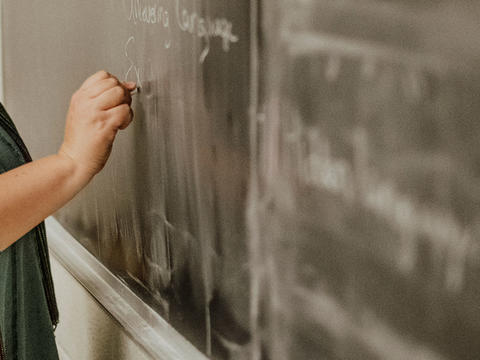Microfinance Students Travel To Bangladesh

Visiting Assistant Professor of Economics Shannon Mudd (center) and the nine students he took to Bangladesh over winter break.
Details
Sometimes in order to really learn something, you have to go to the source. Want to learn French? Go to France. Fascinated by ancient ruins? Go to Greece. And if microfinance is your area of interest, Bangladesh should be your destination. The South Asian country is considered by many to be the birthplace of microfinance, the growing field which aims to lift low-income individuals out of poverty through microloans and other financial services. Nobel Peace Prize-winner Muhammad Yunus formed his Grameen Bank in Bangladesh in 1983, and two of the other innovators of the field, BRAC and ASA, are also headquartered there. So when Visiting Assistant Professor of Economics Shannon Mudd was looking for a place to take his microfinance students to get some field experience, Bangladesh was a natural destination.
“I was keen to take students to a place that would likely expose them both to a very different culture and to a level of poverty they had not seen before,” says Mudd, who helped launch Haverford's Microfinance and Impact Investing Initiative (Mi3) in fall 2011. Since microfinance was first conceived as a tool to eradicate poverty, gaining an understanding of poverty and its challenges is key to understanding what has gone into the development of the sector, he says.“And it is well understood that MFIs have to adjust their practices to the context in which they are operating. Culture matters. It was important to see how an MFI in a very specific environment operates.”
Through a partnership with Alliance Forum Foundation, and with funding help from Haverford's Center for Peace and Global Citizenship and Bryn Mawr College, Mudd was able to bring nine Bi-Co students to Dhaka and Bogra over winter break. The group kept a busy schedule over its 10-day trip, meeting with six different microfinance institutions (MFIs) or their associated programs. The institutions ranged from those with 2000 clients (Association of Medical Doctors of Asia) to 4 million clients (ASA). Some focused solely on financial products (Buro), while others included health and other services (TMSS). The meetings included site visits to meet clients, loan officers and branch managers, to observe the effects of the organizations' work and to learn details of each organizations unique mix of products and approaches to poverty alleviation. The students also met with representatives from the Consultative Group Against Poverty (CGAP) and Innovations Poverty Action (IPA) and shopped at Aarong, a fair-trade organization that works with disadvantaged artisans and rural women.
“This trip has left me wanting to spend more time abroad studying access to finance,” says economics major Claire Perry '14.“People always say that you never understand a place until you spend time there, and that resonates very strongly with me now. Though only there for a week, I feel like I know Bangladesh a lot more than other places that I have only [read] about.”
“The best part [of the trip] to me was the learning alongside my students,” says Mudd, who had never been to Bangladesh before.“It was a great group of traveling companions and their questions and investigations led to some important discoveries that I might not have pursued were I there on my own.”
Some of those discoveries include learning what a mature industry microfinance is in Bangladesh and how stable the connections are between the MFIs and their clients, many of whom have a 10- or 15-year borrowing relationships with one another. Also of interest to the group was the fact that the MFIs didn't place much emphasis on measuring the social impact of their loans, because, to them, the positive effects are apparent.
The group has brought what they learned back to campus. Mudd is infusing his microfinance classes with observations from his travels. Students in the Microfinance Consulting Club are now looking to use Bangladesh as the next country they focus on in their ongoing mapping project. And one student, Melissa Forrow '13, used the trip to gather research for her forthcoming economics senior thesis. Forrow, who is writing about how women's empowerment and levels of domestic violence are affected by microfinance loans, feels that actually being in Bangladesh and interacting with loan officers and recipients has helped her understand the kinds of cultural and social nuances that aren't always a part of economics research.
“I [wanted] to finish writing my thesis in the spring feeling like I have taken advantage of all of the resources available to me and incorporated both personal and academic experiences to create an authentic and informative work,” says Forrow.“I think that it would be arrogant to claim real knowledge of social effects of microfinance in Bangladesh without ever interacting with a loan officer, loan recipient or other microfinance worker in the country. The study tour was an incredible opportunity to do that.”
-Rebecca Raber



